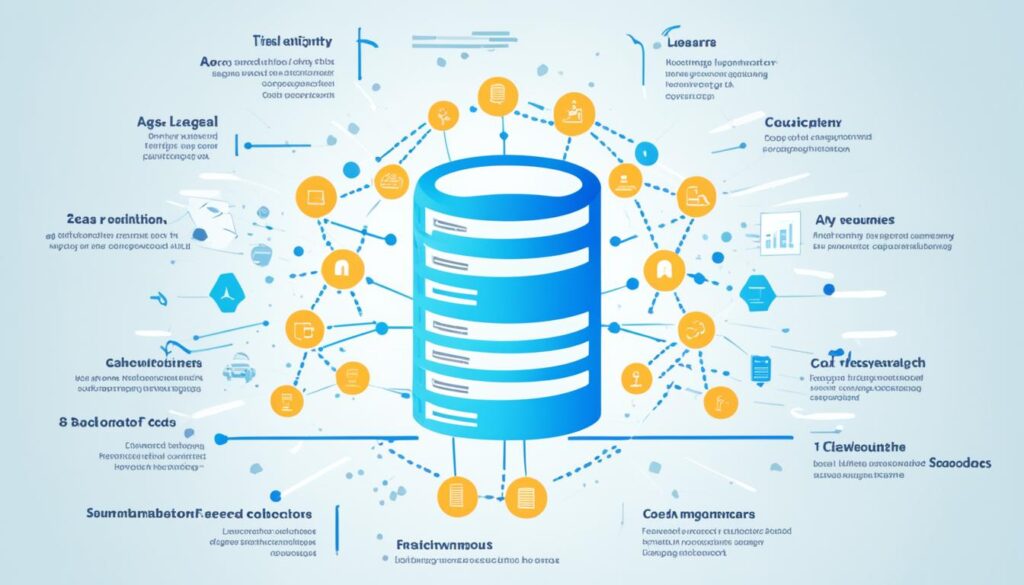
HOW AI CAN HELP ATTORNEYS WORK SMARTER & FASTER
By 2025, will artificial intelligence (AI) make lawyers useless? No, instead, AI will change the legal world. It will make attorneys work smarter and faster.
Thanks to AI, lawyers can automate simple tasks. This lets them focus on more important parts of their work. A report from 2024 shows that 81% of lawyers who use AI are more productive.
Legal AI affects many parts of a lawyer’s job. How can AI help lawyers? It can assist in MANY different ways, including with legal research, looking at contracts, reviewing documents, and predicting outcomes. More and more lawyers are using AI to create documents. For example, 42% use it for writing, 38% for summaries, 39% for templates, and 34% for changes.

The future looks bright for AI in the legal field. It will bring new ways for lawyers to work. For example, there will be smarter ways to search cases and help with tasks. AI will even help with setting fees and negotiating deals. It will make legal work more efficient. However, this progress needs to think about ethics and privacy.
Key Takeaways:
- AI streamlines legal work by automating routine tasks, allowing lawyers to focus on strategic aspects
- 81% of lawyers using AI report increased productivity
- AI applications in law include legal research, contract analysis, document review, and predictive analytics
- Machine learning enables unprecedented efficiency and accuracy for legal professionals
- The future of AI in law promises intelligent case search, virtual assistants, predictive billing, and automated negotiation strategies

Understanding AI in the Legal Context
The legal field is embracing artificial intelligence (AI) at a rapid pace. Technologies like machine learning (ML) and natural language processing (NLP) are being used. These tools help lawyers by making their work quicker and more accurate.
A report by MyCase and LawPay says 42% of law firms early to AI use it every day. This shows that AI tools are gaining popularity among legal experts. The benefits of these tools in legal practices are clear.
Definition and Types of AI in the Legal Field
Machine learning is key for systems to improve without step-by-step instructions. It processes large amounts of data without human help. This is very helpful in law, allowing attorneys to find key information in their cases.
Natural language processing helps computers understand human speech. This makes working with legal documents much easier. It also improves how lawyers interact with technology, making it more user-friendly.
Predictive analytics looks at past data to predict future events. In the legal world, this helps in making strategies for cases and evaluating risks. It’s a vital tool for lawyers to offer the best advice to their clients.
Robotics process automation uses software to complete repetitive tasks. It’s great for things like filing documents. It helps lawyers save time and reduce errors in simple tasks.
Emerging Trends in AI and Legal Tech
New trends are opening up in the legal tech world thanks to AI:
- AI platforms for legal research are getting more popular for their quick data analysis.
- AI combined with blockchain can make contract management more efficient through smart contracts.
- There’s a growing use of AI virtual assistants to provide round-the-clock client support.
- Advanced analytics are helping to predict case outcomes better, improving legal strategies.
The legal sector is moving towards AI that’s specifically trained for legal tasks. This specialized AI is getting better at what it does. However, not everyone has the same access to these high-tech legal tools.
| AI Application | Percentage of Legal Professionals Using AI |
|---|---|
| Drafting and Templating Communications | 58% |
| Conducting Legal Research | 53% |
| Summarizing Legal Narratives | 42% |
| Reviewing Legal Documents | 34% |
| Drafting and Templating Legal Contracts | 23% |
It’s important for lawyers to keep up with how AI is changing the legal field. Understanding the latest legal tech is crucial. By using AI effectively, lawyers can make their work smoother. They can also offer better service to their clients.
Innovations in Legal Technology
The legal world is changing fast, thanks to new tech. In 2024, many cool innovations are leading this change. They’re making legal work easier, more precise, and less costly. Key technologies include blockchain, AI for research, virtual law firms, and smart contracts. Together, they’re shaping the future of law practice.

Blockchain and Smart Contracts
Blockchain shakes up the legal field by offering secure record-keeping. It’s great for preserving evidence, managing IP rights, and keeping records safe. Lawyers can use blockchain to secure important documents, making it hard for anyone to change them. This cuts down on fraud risks.
Smart contracts are coded agreements that run without a middleman. They make deals simpler since they enforce themselves. With more use of blockchain and smart contracts, making and enforcing legal agreements is changing big time.
AI-Powered Legal Research Platforms
AI tools are changing how lawyers research law. They quickly scan huge amounts of data, giving lawyers the insights they need, fast. This speeds up research and leads to better advice for clients.
By 2024, over half of all firms will use AI in their legal research. With AI, lawyers can do their research faster and find more accurate information. This means better services for clients everywhere.
Virtual Law Firms
Virtual law firms are becoming more common. They use tech to offer legal services online. This saves money by not needing physical offices. It also allows them to work with clients from around the world.
With less overhead, these virtual firms can offer their services at lower prices. This opens up legal help to more people. It also attracts top lawyers looking for flexible work and a global reach.
Advanced Legal Analytics
Legal analytics are changing how lawyers make decisions. By looking at tons of legal data, they predict outcomes and spot trends. This helps lawyers strategize better and provide stronger advice.
| Legal Analytics Use Case | Benefits |
|---|---|
| Litigation Prediction | Companies can achieve predictive accuracy rates of up to 90% in litigation prediction using AI, enabling lawyers to assess risks and develop effective strategies. |
| Judge and Court Analysis | By analyzing past rulings and tendencies of specific judges and courts, legal analytics tools help lawyers tailor their arguments and approaches to maximize chances of success. |
| Settlement and Damages Estimation | Predictive analytics assist lawyers in estimating potential settlement amounts and damages based on similar cases, facilitating more informed negotiations and decision-making. |
Advanced legal analytics are changing how lawyers plan their work. They offer data-driven insights that lead to better strategies and advice. Soon, every smart lawyer will use these tools.
Key Applications of AI in Legal Work
AI is changing how legal professionals work. It helps by making contract analysis quicker and by improving research. These are some top uses of AI in the legal field:
Contract Analysis and Management
AI tools are changing how lawyers review contracts. They can spot issues faster and ensure laws are followed. This makes reviews quicker and helps manage risks better. Studies show AI can make contract reviews much faster by flagging issues automatically.
Legal Research
AI is also big in legal research. Tools powered by AI can go through lots of cases quickly. They help lawyers find the information needed for strong arguments fast. This speeds up the whole research process.
E-Discovery and Document Review
When lawyers have to find specific documents, AI can help. In the document review stage of cases, AI tools can locate important information in large data sets. This makes the process faster and allows for better responses to case requests.
Predictive Case Outcome Analytics
Predictive analytics is a cool AI use in law. AI tools look at past cases to predict the outcomes of current ones. This helps lawyers plan their strategies better, making decisions based on data about risks and opportunities.
| AI Application | Percentage of Lawyers Using |
|---|---|
| Drafting/templating communications | 58% |
| Legal research | 53% |
| Summarizing legal narratives | 42% |
| Reviewing legal documents | 34% |
| Drafting/templating legal contracts | 23% |
Writing and Client Communications
AI is also changing legal writing and how lawyers communicate with clients. AI legal writing tools edit and refine content quickly. They make it clear and persuasive. They also improve how lawyers communicate with clients, leading to better client relationships. This allows lawyers to focus on their message while AI handles the details.
Legal Chatbots and Virtual Assistants
AI chatbots and virtual assistants are changing how lawyers serve clients. These tools can answer questions instantly and are available all the time. They handle simple tasks, letting lawyers focus on complex work. As AI advances, it will bring more changes to the legal field.
AI cannot replace legal professionals but can speed up research dramatically.
How AI Can Help Lawyers in 2024
In 2024, AI will change the legal field a lot. It will give lawyers many new tools. These include smart case searches and systems that make documents automatically.

A big step forward in AI for law is smart case searches. These use language skills and learning to figure out legal questions. They then find old cases that can help, saving lawyers lots of time.
Another cool thing is smart firm searches. These let clients pick law firms by how well they do, what other clients say, and what they focus on. This means top law firms can stand out more and attract more clients.
Predictive analytics is also becoming big in law. This tech dives into past law cases and billing to help lawyers plan costs better. This helps with money planning and makes it easier for lawyers to tell clients what things will cost.
“AI adoption by legal professionals is expected to bolster their capacity to handle more cases effectively, with 81% of personal AI usage within the legal industry aimed at increasing productivity and efficiency.”
Using AI to automate tasks is also important. It makes checking legal papers, guessing case results, and picking negotiation plans faster and better. For instance, AI can spot risks and good chances in big deals and help lawyers plan court cases better.
| AI Application | Benefits for Lawyers |
|---|---|
| Intelligent Case Search | Quickly identifies relevant case law and suggests applicable strategies |
| AI-Powered Document Automation | Streamlines drafting and review of legal documents, saving time and reducing errors |
| Contract Analytics with AI | Identifies potential risks and opportunities within complex agreements |
| AI Case Outcome Prediction | Helps lawyers develop more effective litigation strategies |
The goal of AI in law is not to replace lawyers. It helps them do work better and faster. By handling routine jobs, AI lets lawyers focus more on making smart legal plans and getting great results for their clients.
To sum up, AI will make law more lively, exact, and productive. Moving into 2024, lawyers using AI to their advantage will have a big edge in the market.
Future Outlook and Predictions
Looking forward to 2024, AI in the legal field is full of promising opportunities. It will change how lawyers work, making things more efficient and precise. Global spending on AI tools for legal services is set to hit $37 billion by 2024. This shows the legal industry’s eagerness to use this tech.
Intelligent legal automation will be big in 2024. Around 55% of law firms might use AI for legal research. It’ll quickly and precisely process oodles of legal data. This upturns the research process, helping lawyers find insights they might have missed before.
AI will also advance in predictive analytics. Tools predicting legal outcomes using AI could be up to 90% accurate. This means lawyers can make better decisions and build stronger cases. AI’s predictive skills will mark a major shift in the legal industry, boosting service quality.
“In H1 2024, plaintiffs’ firms will widely and deeply adopt AI, leading to more legal work and billable hours ultimately.” – Tanguy Chau
In 2024, AI will have a bigger role in common legal software. Developers will improve AI tech to understand legal documents better and faster. AI will be used in many tasks, from checking contracts to searching documents. This frees lawyers to do more strategic work.
“2024 will focus on how people work with generative AI in the legal field.” – Wendy Butler Curtis
AI could personalize legal services a lot. Tech will help law firms cater services to each client’s needs. By analyzing data, lawyers can give very focused advice and better connect with clients. This brings more value and stronger relationships.
| Legal AI Trend | Potential Impact |
|---|---|
| Intelligent Case Search | Provides relevant case citations and suggests strategies based on historical data |
| Intelligent Firm Search | Enables clients to choose firms based on success rates, reviews, and expertise |
| Predictive Analytics | Forecasts legal service costs through predictive billing models |
| Intelligent Automation | Streamlines document analysis, predicts case outcomes, and recommends negotiation strategies |
Legal AI is about enhancing, not replacing, lawyers. It will make services more efficient and personal. Human expertise working with AI is the future of the legal profession.
“AI will rapidly shift from being indistinguishable from magic to an indispensable tool in day-to-day legal operations.” – Sean Monahan
We’re almost at the start of a new legal tech era, powered by AI. By keeping up with AI developments, law professionals can lead in innovation. They’ll offer great value through advanced AI services, shaping the legal future.
Benefits and Challenges of AI in the Legal Industry
AI is changing how the legal field operates. It brings both benefits and challenges. For example, AI tools help lawyers work more efficiently. This means they can spend more time on important tasks. In a report by MyCase and LawPay, 81% mentioned AI makes them more productive.
Accuracy is also getting better with AI in the legal world. It makes sure work is done the same way every time. This lowers the chance of mistakes. AI tools also help law firms serve their clients better. They can give more personalized help quickly. This improves how satisfied clients are. Plus, using AI saves money. Law firms can do routine jobs with less effort, offering better prices to clients.
But using AI in law raises some big ethics questions. Things like bias, being clear about how AI works, and staying responsible are important. We need to make sure AI is fair for everyone. Privacy of clients’ data is also a key issue. Keeping their information safe is vital, along with following the law on privacy.
AI is growing in the legal field. So, law firms must handle its challenges well. They should focus on keeping data safe and acting ethically. Also, being open about how they use AI and talking about its ethical sides are crucial. This way, they can use AI in a way that’s good for everyone, keeping up the high standards they are known for.




